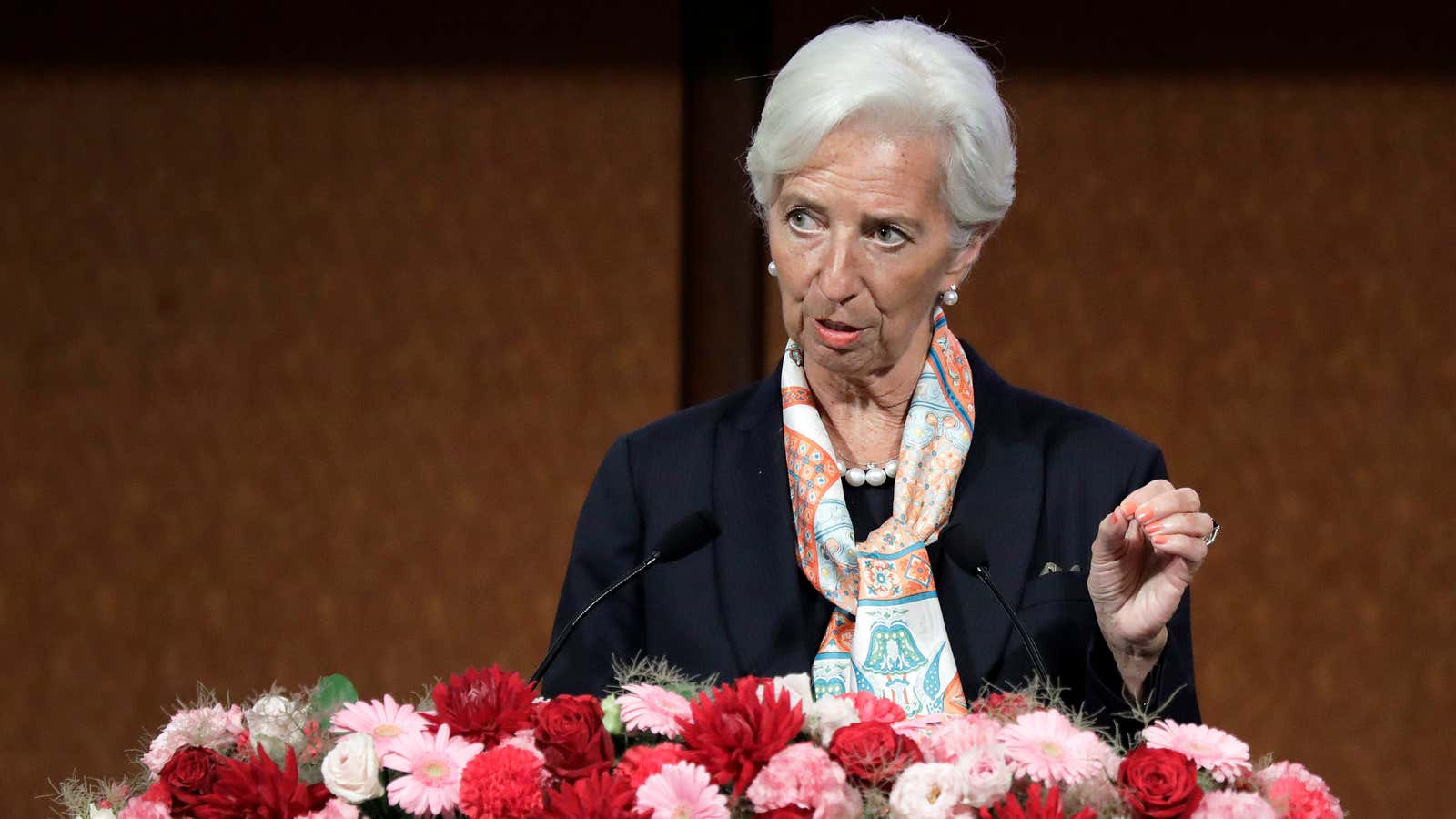The International Monetary Fund thinks big technology companies are going to dig deeper into the financial sector—a shift that could modernize things like payments and loans for millions of people. But it also raises concerns about data privacy and the concentration of power among a small number of mega-corporations.
In recent years, there’s been widespread speculation of a financial-sector invasion by the likes of Amazon and Facebook. However, many top executives now think the fortress of regulation surrounding big banks will successfully repel the tech giants. Apple’s credit-card partnership with Goldman Sachs is sometimes offered as an example: the iPhone maker’s payments offering (Apple Pay) is relatively light-touch in terms of regulatory scrutiny, while Goldman Sachs, the Wall Street stalwart, handles the heavy financial lifting.
Even so, “a significant disruption to the financial landscape is likely to come from the big tech firms, who will use their enormous customer bases and deep pockets to offer financial products based on big data and artificial intelligence,” IMF managing Christine Lagarde said in a speech on June 8. Technology companies could bring more unbanked people into the financial system, but their business models also raise privacy, competition, and market-concentration concerns, “which could lead to vulnerabilities in the financial system,” Lagarde said at a G20 meeting in Fukuoka, Japan.
Lagarde is among those who see the success of Chinese technology companies as a sign of things to come. Tencent’s WeChat Pay and Ant Financial Alipay dominate digital payments in China (membership). “Over the last five years, technology growth in China has been extremely successful and allowed millions of new entrants to benefit from access to financial products and the creation of high-quality jobs,” Lagarde said. “But it has also led to two firms controlling more than 90% of the mobile payments market.”
Amazon, Google, Facebook, and Apple have made a push for their own payment offerings, but their digital wallets aren’t as widely used. That hasn’t stopped them from trying. Amazon, Google, and Facebook are battling for a slice of the payment sector in India, and Facebook is working on a cryptocurrency product that could potentially be used for commerce and remittances.
As they expand their reach, the American tech giants are running into more government scrutiny. Over the past decade, Google has been hit with EU antitrust charges totaling $9.5 billion. US lawmakers are preparing to probe whether the biggest tech companies have abused their strength in the digital economy. The world’s major economies may also be moving closer to a global tax on tech firms.
In that respect, China could again be a sign of things to come. When Ant Financial attracted greater scrutiny from Chinese authorities, it pivoted toward technology, leaving the business of banking to the banks. It’s too late for the the big US tech firms to avoid a heavier hand from Washington and Brussels, but they may be wary of encroaching on banks’ turf for fear of attracting even more unwanted regulatory attention.
